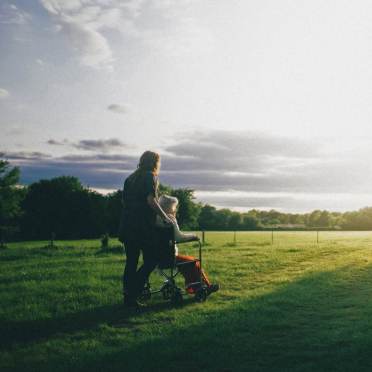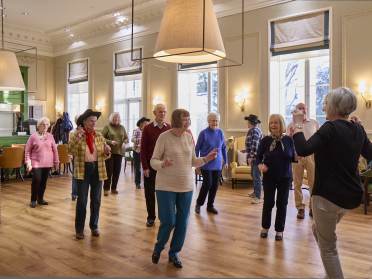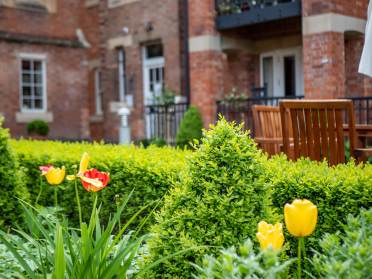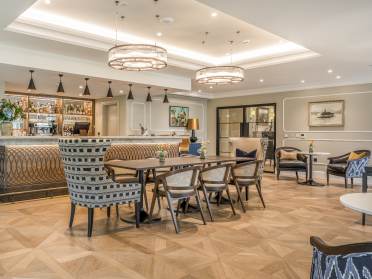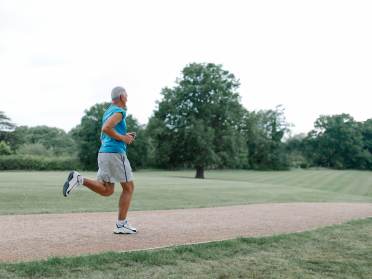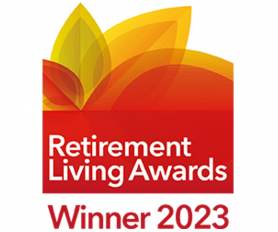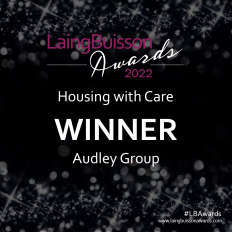Find your perfect retirement living option
When considering how you want to live in retirement, you may look into more options. From luxury retirement villages and sheltered housing to assisted living and nursing homes, there’s a whole range of choices depending on your particular needs and budget.
To help you decide, we’ve outlined the main retirement living options here.
Retirement homes and retirement villages
Retirement villages offer independence and flexibility whether you're completely self-sufficient or in need of some support, often with a variety of rental and leasehold properties. You can either own or rent your retirement home within a beautiful community, also called a retirement village.
Often set within a village community, the wide-ranging facilities and various care options mean you can choose the lifestyle, involvement and level of help you want.
Retirement villages can feel like local communities. Lots are built around a central building which houses facilities such as restaurants, bistros, bars, spa's, swimming pools and more, creating a hub of activity. Many have care options available through on site staff or through a third party provider.
-
What is it like to rent in retirement?
-
Renting a retirement property opens the door to the retirement living experience whilst paying rent and a monthly management fee each month. Rented properties can vary considerably in size and number of rooms, typically include communal recreational areas and care staff on hand. Rented homes are often in a sheltered housing development although rental options are becoming increasingly well-considered in retirement villages.
ASSISTED LIVING
Who is it for?
Assisted living is designed for anyone who needs assistance with everyday tasks (e.g. medications) with staff on hand 24 hours a day.
What is it like?
Living spaces can be individual rooms, apartments, shared quarters or even shared rooms, depending on budget. Assisted living offers a home-like setting with mini kitchens and communal spaces for dining, social and recreational activities. Costs vary according to how much assistance is given.
Have you considered moving to a retirement village?
If you are aged over 55 and your home is no longer meeting your care needs, we urge you to consider moving to an Audley Village. At the heart of each retirement village is a centrepiece building containing the Audley Club, housing the facilities you’d normally expect to find in a country house hotel.
Added benefits
If you buy a property in an Audley village you'll have access to:
Health club | Restaurants | Guest suites | External upkeep of your property and gardens | Night Porter | Security service | CCTV | On site care team | Preferential Audley Care rates
Sheltered housing
Who is it for?
If you’re mostly self-sufficient and would enjoy the chance to socialise with other residents, sheltered housing may be a good retirement living option.
Sheltered housing schemes are supervised, self-contained homes with some facilities and 24-hour emergency help on demand. Extra-care sheltered housing also provides meals and personal care, combining the independence of sheltered housing with some of the support a care home or nursing home would provide.
What is it like?
Buildings are often functional in style with some communal facilities such as laundry rooms, social lounges, guest suites and shared gardens. You can rent or buy sheltered housing on a leasehold basis. Homes are let by local councils and housing associations, so allocation criteria and waiting lists usually apply.
Audley Villages are different from warden-controlled housing or sheltered accommodation.
Care homes
Care homes offer two levels of support – residential care (without nursing assistance) and nursing care (with assistance).
Who are care homes for?
Residential care homes are designed for people who need help with everyday tasks and are unable or may not wish to maintain their current home.
What is it like?
Typically, a care home offers a personal bedroom, sometimes with an en-suite and shared communal areas. Residential care includes meals, help with personal care like bathing and dressing, 24-hour staff, physical and emotional care and care through short illnesses.
Nursing homes
Who is it for?
Nursing homes are for people requiring everyday medical care, but not needing to be in hospital full-time. This option is mostly considered by those unable to get care at home or not wishing to maintain their home.
What is it like?
In a Nursing Home you are typically offered bedroom, sometimes with en-suite bathroom. Nursing home staff provide medical care and support, 24 hours a day, 7 days a week. Some would also offer specialist care, such as occupational or physical therapy.
Read more about pros and cons of moving to a nursing home.







